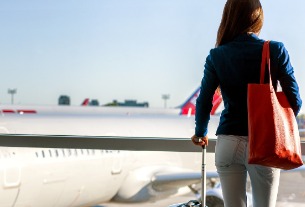Faced with rising numbers of last-minute cancellations and the resulting empty rooms, hotel chains are working out ways to recoup some of that lost money with new penalties and rate structures – with repercussions for travel buyers.
One reason behind the rise in cancellations is the adoption of rebooking engines such as Yapta, RoomIQ and Tripbam in the business travel sector, with buyers and TMCs taking advantage of third-party tools to check last-minute room rates, rebooking if applicable.
Hotel consultant Bjorn Hanson believes these tools have complicated the late booking process. “This traveller behaviour makes it more of a challenge for hotels, which causes more volatility in room rates,” he says.
Consumers, meanwhile, have altered their behaviour to “game the system” by chasing cheaper deals across OTAs, although the sites themselves are under scrutiny over how they display prices.
As a result, hotels are looking at “customer-centric” pricing, taking the lead from airlines’ drive towards personalised pricing models. This strategy offers buyers the choice to pay more for a room if they want a more lenient cancellation charge.
Penalty time
Hilton first tackled the issue of rising cancellations in 2015 when it decided to run a test at 20 of its hotels and charge guests a USD 50 penalty if they cancelled their room reservation at any point after booking.
At the time, Hilton’s chief executive Chris Nassetta admitted it was intentionally used as a “blunt force” instrument to gauge customers’ reactions to changes in cancellation policies. “What we learned was that customers hated it, although that was not a surprise,” he said.
But the issue for hotels has escalated and “cancellations, in markets, have skyrocketed”, according to Nassetta. And so this year Hilton launched a customer-centric pricing strategy across North America. At the end of September it will be rolled out across global markets, including the UK and mainland Europe.
Buyers can expect a tiered pricing structure with flexible, semi-flexible and nonrefundable advance-purchase rates. The benchmark BAR (Best Available Rate) has been replaced with a fully flexible rate (now called Flexible Rate) which is higher than the old BAR by a few percentage points.
The semi-flexible rate gives travellers a four- or five-day window to cancel the booking prior to arrival, offered at a discount of some one percentage point or more. The next step, some analysts suggest, may be flexible and semi-flexible pricing structures that would require a cancellation notice within seven days.
In April this year, Nassetta told analysts that the flexible rate structures being used by airlines had provided Hilton with a “decent model” for its own pricing strategy. “The idea is to give customers choice and instead of it having to be a stick, have it be more of a carrot in that if you want more flexibility, you’re going to pay a little more for it, and if you don’t need as much, we’ll give you a little bit of an incentive to let us know.”
A Hilton spokesperson told BBT: “This will also reduce the number of last-minute cancellations. The new pricing structure will provide added flexibility for those who want it and cost-savings for those who do not require the flexibility to change their reservations.”
Rachel Newns, hotel product manager at FCM Travel Solutions, believes Hilton’s new strategy is effectively a version of dynamic pricing (where rates are determined according to supply and demand). “Hilton has been pursuing a move to dynamic pricing for some time and this is the next development in that approach,” she says.
Agreeing on flexibility
Are buyers prepared to pay more? Simon Hawley, travel category manager at Capita plc, says hoteliers are responding to a new commercial reality: “Recently hoteliers have shifted from on-the-day cancellation policies to 24 hours. I appreciate the desire to make that change – having an on-the-day cancellation policy for the most part of the year would give next-to-no opportunity to resell the rooms and by 24 hours prior, most travellers will generally know if a room isn’t required.
“For our programme, the effect was a change in traveller behaviour to being more mindful and bringing forward action to cancel a room. It was a good example of hotelier and corporate working in partnership and driving logical change – plans change and mutually agreeable parameters on flexibility can be reached.”
However, one travel manager, who works for an advertising agency, said they would feel alienated by matching price to demand rather than following negotiated rates. “It seems that the process tips the balance in favour of hotels, especially as it can mean we pay more than expected and more than others in a similar situation. We feel there is a lack of transparency and trust.”
Chris Vince, director of operations at Click Travel, warns new pricing structures could also hinder flexibility for corporates. “There is so much pressure being applied to travellers and bookers to be extremely cost-conscious. With this more ‘customer-centric’ pricing policy there is a concern that the flexibility to change bookings without charge could see prices rise.”
However, Hilton’s pricing revamp has received guarded backing from some in the hotel sector – as with many in the industry, they too must compete with growing dominance of the OTAs.
“Hilton and other companies tightening their cancellation policies may not endear themselves to consumers, but it’s crucial to remain competitive in a complex distribution landscape with OTAs looking to undercut hotels,” says Marco Benvenuti, co-founder and chief strategy officer for Duetto.
“By offering different prices for different cancellation and refund policies, Hilton is allowing consumers and corporate travellers the option to pay for what they want,” he adds. “That’s the foundation of revenue management and a first step to our open pricing philosophy that enables hotels to keep channels, segment and room types open and available at rates based on demand.”
FCM Travel’s Newns adds that the choice of either fully flexible or less flexible rates based on need is quite common in rail and air, so why not hotels. “It is also likely that the overall strategy for Hilton will be to charge a premium to have the advantage of full flexibility, offering travellers more choice but at a price.”
RFP role questioned
New hotel pricing models could also be seen as a reaction to some buyers and TMCs moving away from Request For Proposals in their buying programmes.
Wesley Bergstrom, vice-president for global supplier relations, hotel value and revenue management, Amex GBT, says: “The current RFP process is cumbersome and does not always drive the best outcome. Optimising programmes and integration of more choice can help solve many of the issues with RFPs, including last room availability, black-out periods, value-added benefits for travellers and reducing the number of hotels used in an area.”
Steve Fitz-Costa, business travel sales director at Accorhotels, meanwhile suggests RFPs are still viable, but shrinking: “Corporate buyers are now applying the detailed RFP process to a much smaller percentage of their hotel programme, so it’s essential we have a flexible pricing structure… and as the technology develops, we will see a decline in volumes managed through RFP.”
Capita’s Hawley envisages a middle ground – for the moment. “The most important element of a hotel rate is that it’s priced competitively,” he says. “Working with a mandated hotel programme allows Capita to agree competitive rates based on clear volume expectations, and there is access to that rate, either through allocation or Lowest Rate Available. Having an agreed rate on these terms creates a ceiling price for the corporate and allows both parties to effectively optimise budgets and forecasting.
“With a model of dynamic pricing, the deal to the corporate is a set or flexible discount from BAR, but the hotelier decides what that discount is and what BAR is at any given time. I’m unclear how that benefits the corporate. Dynamic pricing has its place alongside contracted rates for areas where there is not enough volume to establish a contracted rate.”
One glimpse of the future of hotels inventory control is being offered by Rotana, using artificial intelligence. The UAE-based hotel group, with properties in 20 countries, has recently revamped its data management systems with new business intelligence tools. These include “enhancing booking processes through the installation of AI-driven chatbots,” according to Samir Abi Frem, Rotana’s corporate vice-president of IT.
How buyers react to Hilton’s new pricing structures will no doubt be closely watched, in particular by those chains that could capitalise on any backlash from buyers. As Hawley says: “To suggest any cancellation flexibility will come at an increased cost is, in effect, penalising the corporate for the core business it is placing with the hotel. I would proactively switch business towards hotels willing to work in conjunction with the corporate – so potentially it’s a good opportunity for the more long-term, partnership-minded hoteliers.”
OTAs under investigation
In June this year, the Competition & Markets Authority (CMA) said it was taking “enforcement action” against several OTA-owned hotel booking sites it believed could be in breach of consumer protection law.
The CMA has not yet named the OTAs because, according to CMA chief executive Andrea Coscelli, “we’re demanding sites think again about how they are presenting information to their customers and make sure they are complying with the law”.
The CMA has sent letters to several sites demanding they review their practices. Coscelli warned the next step would be “to take necessary action – including through the courts – to ensure people get a fair deal”.
The CMA is also examining the extent to which a hotel’s website ranking is potentially influenced by how much commission an OTA earns from a hotel when a booking is made via its portal. Other concerns include hidden charges that are only revealed at the end of the booking process.
The watchdog has asked the Advertising Standards Authority (ASA) to consider how far statements such as “best price guarantee” or “lowest price” were misleading, although the ASA is a non-statutory organisation which cannot interpret or enforce legislation.
Do cancellation penalties work?
In 2015, Marriott and Hilton introduced cancellation policies that imposed a penalty of one night’s charge if a pre-booked room was cancelled after 11.59pm on the day before planned arrival. However, it had a limited impact on cancellations.
Revenue management company Duetto found an average of 16.4 cancellations per night in the first half of 2016 (analysing 1,000 US hotels). More of a worry for hotels, however, was the steady monthly increase from a low of 10.7 cancellations per night in March to a low of 12.7 per night in July.
In June 2017, Marriott moved to a 48-hour cancellation policy for its hotels in the US and, in some places where demand was high, this was extended to 72 hours. For those hotels with a 48-hour policy, Marriott discovered cancellations were being made earlier than at a late stage and bookings went up.
Marriott chief executive Arne Sorenson said few hotel customers welcomed “incremental restrictions on flexible reservations… but I think most understand that we have a need to manage our inventory and avoid ‘walking people’.” In hotel jargon, “walking people” means being forced to relocate guests to other nearby hotels (if rooms are available) when their original accommodation is overbooked.
Even so, a recent Business Travel Coalition poll of 216 travel managers and TMC executives from a dozen countries found that 59% would likely book away from Marriott as a result.
Read Original Article




